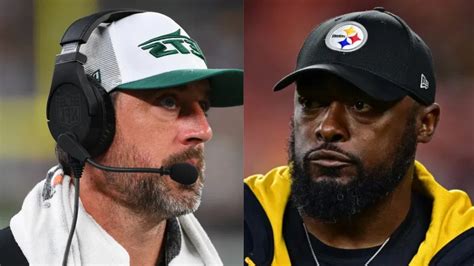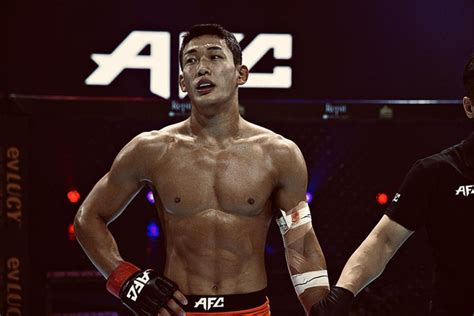
Bryce Harper’s recent remarks about the Philadelphia Phillies’ roster construction and his desire for the team to add more talent resembling himself, Rhys Hoskins, and J.T. Realmuto have ignited a fresh wave of anxiety among fans and analysts. These comments, made during a recent interview, are being interpreted as a veiled critique of the team’s front office and their strategy for building a championship-caliber roster.
Harper’s statements, suggesting the need for players with a similar “dog” mentality, have raised questions about the current clubhouse dynamic and the overall competitiveness of the Phillies. While his passion and desire to win are undeniable, the timing and nature of his comments have stirred debate about whether they will serve as a catalyst for positive change or create unnecessary tension within the organization.
The remarks come at a crucial juncture for the Phillies, who are striving to solidify their position as a perennial contender in the National League. With high expectations following their recent playoff appearances, any perceived discord or uncertainty surrounding the team’s direction is bound to amplify existing concerns.
Harper’s comments have been widely disseminated through sports media outlets, leading to extensive analysis and speculation regarding their potential impact on the Phillies’ future. As the team navigates the remainder of the season and prepares for the offseason, the spotlight will be firmly fixed on how these concerns are addressed and whether the Phillies can effectively capitalize on their existing talent while strategically adding new pieces to the puzzle.
The genesis of this discussion stems from an interview where Harper openly expressed his views on the composition of the Phillies roster. He emphasized the importance of acquiring players who possess a similar level of intensity, determination, and commitment to winning as himself, Hoskins, and Realmuto. This sentiment, while not explicitly critical, was interpreted by many as a subtle nudge towards the front office to prioritize players with a proven track record of success and a relentless competitive spirit.
“I look forward to adding more guys like that,” Harper stated, alluding to the characteristics he values in teammates. He further elaborated on the significance of having a core group of players who are not only talented but also possess the mental fortitude and unwavering dedication required to overcome challenges and achieve sustained success.
These remarks have resonated with Phillies fans, who are eager to see their team consistently compete for championships. While Harper’s passion is appreciated, some observers have cautioned against the potential for his comments to be misconstrued or to create undue pressure on the front office to make rash decisions.
The Phillies’ front office, led by President of Baseball Operations Dave Dombrowski, has a track record of making bold moves to improve the team. However, they also face the challenge of balancing short-term needs with long-term sustainability. Harper’s comments undoubtedly add another layer of complexity to this equation, as the front office must carefully weigh his input while also considering the broader implications of any roster changes.
One of the key questions arising from Harper’s remarks is whether the Phillies already have enough talent in place to contend for a championship. The team boasts a roster filled with All-Stars and proven veterans, but they have also struggled with consistency and have occasionally fallen short in critical moments.
Some analysts argue that the Phillies’ primary need is not necessarily more talent, but rather improved performance from their existing players. They point to the fact that several key players have underperformed at various times, and that unlocking their full potential could be the key to unlocking the team’s championship aspirations.
Others contend that the Phillies need to add more depth and versatility to their roster. They argue that the team has been too reliant on a small group of players and that injuries or slumps to those players can have a devastating impact on the team’s overall performance.
Ultimately, the Phillies’ success will depend on a combination of factors, including player performance, roster construction, and coaching decisions. Harper’s comments have served as a reminder that the pursuit of a championship is a complex and multifaceted endeavor, requiring constant evaluation and adaptation.
The Phillies’ front office is now tasked with navigating this delicate situation, ensuring that Harper’s concerns are addressed while also maintaining a cohesive and collaborative environment within the organization. The coming weeks and months will be crucial in determining whether these comments serve as a catalyst for positive change or create a source of division within the Phillies clubhouse.
Examining the Phillies’ Current Roster Construction:
To fully appreciate the context of Harper’s comments, it’s essential to examine the current state of the Phillies’ roster. The team has invested heavily in acquiring top-tier talent, including Harper himself, as well as other established stars such as Zack Wheeler and Trea Turner. These acquisitions have undoubtedly raised the team’s ceiling, but they have also created significant financial commitments that limit the team’s flexibility in other areas.
The Phillies’ roster is also characterized by a mix of veteran players and younger, developing talents. While the veterans provide experience and leadership, the younger players offer potential for growth and long-term sustainability. The challenge for the Phillies is to effectively integrate these two groups and create a cohesive team dynamic.
One area where the Phillies have faced challenges is in developing homegrown talent. While the team has had some success in drafting and developing players, they have not consistently produced a steady stream of impact players from their farm system. This has forced the Phillies to rely more heavily on acquiring talent through free agency and trades, which can be a more expensive and less sustainable approach.
Another factor to consider is the Phillies’ defensive performance. The team has struggled defensively in recent years, and this has often undermined their strong offensive production. Improving the team’s defense will be crucial to their overall success, and this may require acquiring players who are known for their defensive prowess.
The Impact of Harper’s Leadership:
Bryce Harper’s leadership role within the Phillies organization cannot be overstated. As one of the team’s highest-paid and most prominent players, he carries significant influence both on and off the field. His passion, intensity, and commitment to winning are infectious, and he has the ability to elevate the performance of his teammates.
However, Harper’s leadership style can also be polarizing. His outspokenness and unwavering belief in his own abilities can sometimes rub people the wrong way. It’s important for Harper to strike a balance between asserting his leadership and fostering a collaborative environment where all voices are heard and valued.
One area where Harper has excelled as a leader is in his ability to connect with fans. He has embraced the city of Philadelphia and has become a beloved figure among Phillies supporters. His interactions with fans on social media and at the ballpark have helped to create a strong bond between the team and its fan base.
The Phillies’ front office must also carefully manage Harper’s leadership role. They need to provide him with the support and resources he needs to succeed, while also ensuring that he is aligned with the team’s overall vision and strategy.
Potential Roster Moves:
As the Phillies approach the trade deadline and the offseason, there are several potential roster moves that they could consider. One option would be to acquire a starting pitcher to bolster their rotation. While the Phillies have a strong top two in Wheeler and Aaron Nola, they could use more depth behind them.
Another possibility would be to add a left-handed bat to their lineup. The Phillies have been predominantly right-handed in recent years, and adding a left-handed hitter could provide better balance and versatility.
The Phillies could also look to upgrade their defense at certain positions. As mentioned earlier, improving the team’s defense is crucial to their overall success, and this may require acquiring players who are known for their defensive abilities.
Finally, the Phillies could consider trading some of their younger, developing players in exchange for more established talent. This would be a risky move, as it could potentially weaken their farm system, but it could also provide them with the immediate boost they need to contend for a championship.
The Role of Analytics:
In today’s game, analytics play a crucial role in roster construction and player evaluation. The Phillies’ front office relies heavily on data and statistical analysis to make informed decisions about player acquisitions, trades, and lineup construction.
However, analytics are not the only factor to consider. Intangibles such as leadership, clubhouse chemistry, and work ethic are also important, and these qualities are not always easily quantifiable.
The Phillies’ front office must strike a balance between relying on analytics and trusting their own instincts and observations. They need to use data to inform their decisions, but they also need to consider the human element and the unique dynamics of the team.
The Importance of Coaching:
The Phillies’ coaching staff also plays a crucial role in the team’s success. The manager, coaches, and trainers are responsible for developing players, implementing game strategies, and fostering a positive team environment.
The Phillies’ manager, Rob Thomson, has earned high praise for his leadership and his ability to connect with players. He has created a culture of accountability and collaboration, and he has been instrumental in the team’s recent success.
The Phillies’ coaching staff must continue to develop the team’s younger players and help them reach their full potential. They must also work to improve the team’s defense and baserunning, which have been areas of weakness in recent years.
Fan Expectations and Pressure:
The Phillies’ fans have high expectations for the team, and they are eager to see them contend for a championship. This creates a significant amount of pressure on the players, coaches, and front office.
The Phillies’ players must be able to handle the pressure and perform at their best in critical moments. The coaches must create a supportive environment where players feel comfortable taking risks and making mistakes. The front office must make sound decisions that are in the best interests of the team, even if those decisions are unpopular.
The Phillies’ success will depend on their ability to manage expectations and pressure, and to stay focused on their goals.
Historical Context:
To further understand the current situation, it’s helpful to consider the Phillies’ recent history. The team has experienced periods of both success and failure, and they have learned valuable lessons along the way.
In the late 2000s, the Phillies enjoyed a period of sustained success, winning five consecutive National League East titles and a World Series championship in 2008. That team was built around a core group of talented players, including Chase Utley, Ryan Howard, and Jimmy Rollins.
However, the Phillies’ success eventually faded, and the team entered a rebuilding phase. The Phillies’ front office made several bold moves to acquire top-tier talent, but they also faced challenges in developing homegrown players.
The Phillies are now in a position to contend for a championship once again. They have a talented roster, a strong coaching staff, and a supportive fan base. However, they also face significant challenges, including high expectations, financial constraints, and the need to develop their younger players.
Looking Ahead:
The Phillies’ future is uncertain, but the team has the potential to achieve great things. Their success will depend on a combination of factors, including player performance, roster construction, coaching decisions, and the ability to manage expectations and pressure.
Harper’s comments have added another layer of complexity to the situation, but they have also served as a reminder of the team’s ultimate goal: to win a championship. The Phillies’ front office must now navigate this delicate situation and make the decisions that are in the best interests of the team.
The coming weeks and months will be crucial in determining whether the Phillies can effectively capitalize on their existing talent and strategically add new pieces to the puzzle. The baseball world will be watching closely to see how this drama unfolds.
The Phillies’ situation underscores the constant tension between established talent, roster needs, and the ever-present pressure to win in professional sports. Bryce Harper’s expressed desire for more players with a similar competitive fire to his own has opened up a broader discussion about team building and the intangible qualities that contribute to a championship-caliber roster. As the season progresses, the Phillies’ ability to address these concerns and translate their potential into tangible success will be closely scrutinized by fans, analysts, and the entire baseball community. The spotlight is on the front office, the coaching staff, and the players themselves to demonstrate that they can overcome these challenges and achieve the ultimate goal of winning a World Series title.
Frequently Asked Questions (FAQ)
- What exactly did Bryce Harper say that is causing concern?
Bryce Harper publicly stated his desire for the Philadelphia Phillies to acquire more players who share a similar level of intensity, determination, and commitment to winning as himself, Rhys Hoskins, and J.T. Realmuto. While he didn’t explicitly criticize any current players, his remarks were interpreted as a suggestion that the team needs more players with a similar “dog” mentality and a veiled critique of the front office’s roster construction strategy. He emphasized the importance of having a core group of players with the mental fortitude to overcome challenges and achieve sustained success. “I look forward to adding more guys like that,” Harper stated, which implied a need for players who embody a similar level of competitiveness and drive.
- Why are Harper’s comments considered a potential problem for the Phillies?
Harper’s comments could be problematic for several reasons. First, they may be interpreted as a subtle criticism of the team’s current roster, potentially creating tension within the clubhouse if some players feel they are being undervalued or perceived as lacking the desired level of competitiveness. Second, they place additional pressure on the front office to make acquisitions that align with Harper’s vision, potentially leading to hasty or ill-advised decisions. Third, the timing of the comments could be seen as disruptive, as the team is in the midst of a season where they are striving to solidify their position as a perennial contender. Finally, there’s a risk that Harper’s outspokenness could be perceived as undermining the authority of the coaching staff or front office, creating a lack of cohesion within the organization.
- What options does the Phillies’ front office have to address Harper’s concerns?
The Phillies’ front office has several options to address Harper’s concerns. First, they can engage in open communication with Harper and other key players to gain a deeper understanding of their perspectives and foster a sense of collaboration. Second, they can explore potential trades or free agent acquisitions to add players who fit the desired profile of competitiveness and determination, while also carefully considering the team’s long-term financial and strategic goals. Third, they can focus on developing the existing talent within the organization, emphasizing the importance of mental toughness and a winning attitude. Fourth, they can publicly support Harper’s leadership role while also ensuring that his comments are interpreted in a constructive and positive manner. Finally, they can emphasize the importance of team unity and a shared commitment to success, regardless of individual personalities or leadership styles.
- How might Harper’s comments affect the team’s performance on the field?
The impact of Harper’s comments on the team’s performance is difficult to predict. On one hand, they could serve as a motivating factor, inspiring players to raise their level of intensity and commitment. If the team responds positively and embraces a more competitive mindset, it could lead to improved performance and a greater sense of unity. On the other hand, the comments could create division and resentment within the clubhouse, particularly if some players feel unfairly criticized or undervalued. This could lead to decreased morale, poor communication, and ultimately, a decline in on-field performance. The key will be how the team’s leadership, including Harper himself, manages the situation and ensures that the comments are used as a catalyst for positive change rather than a source of conflict.
- What is the historical context of similar player comments and their impact on teams?
Throughout baseball history, there have been numerous instances of players publicly expressing their opinions about team personnel, roster construction, or organizational strategy. The impact of these comments has varied widely, depending on the specific circumstances, the personalities involved, and the team’s overall culture. In some cases, such comments have served as a wake-up call, prompting positive changes and ultimately leading to improved performance. In other cases, they have created irreparable rifts within the clubhouse, contributing to team dysfunction and failure. For example, a veteran player criticizing younger players’ work ethic might inspire some to improve while alienating others. Similarly, a star player questioning a manager’s strategy could lead to constructive dialogue or a complete breakdown in communication. Ultimately, the success or failure of such situations depends on the ability of team leaders to manage the fallout, foster open communication, and ensure that everyone remains focused on the common goal of winning.









